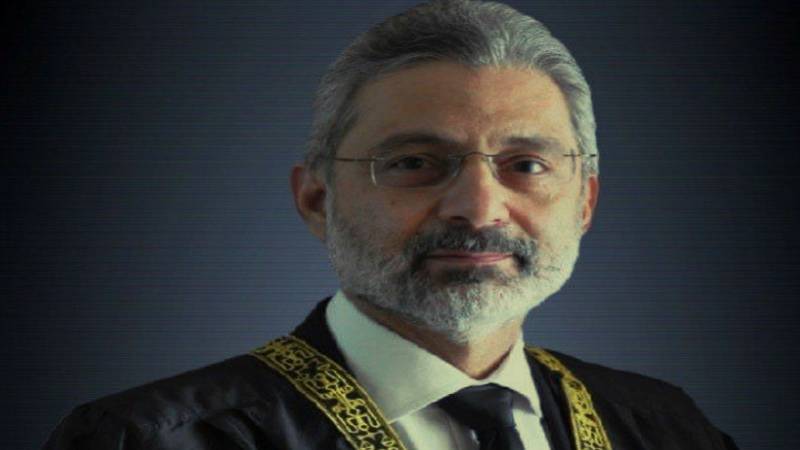
Justice Qazi Faez Isa of the Supreme Court took the oath on Sunday to become the 29th Chief Justice of Pakistan (CJP), succeeding Umar Ata Bandial, who retired the day before.
During a ceremony held at the President's House in Islamabad, President Dr. Arif Alvi administered the oath. Caretaker Prime Minister Anwaar-ul-Haq Kakar, senior military leaders, caretaker federal ministers, senators, and foreign ambassadors were among the dignitaries who attended the ceremony.
But because he is scheduled to retire on October 25, 2024, his tenure as the chief justice of Pakistan will be relatively short.
On September 5, 2014, Justice Isa took the oath to serve as a judge of the Supreme Court. Despite being the senior judge, no constitutional cases have been assigned to him for the previous three years as a result of a presidential reference filed against him in 2019.
The incoming chief justice was born in Quetta on October 26, 1959. His late father, Qazi Mohammad Isa, was a well-known figure in the Pakistan Movement and a personal friend of Quaid-e-Azam Muhammad Ali Jinnah.
After finishing his primary schooling in Quetta, Justice Isa continued his studies at the Karachi Grammar School for his O and A levels. After that, he relocated to London to attend the Inns of Court School of Law to complete his legal studies and pass the bar test.
On January 30, 1985, the incoming chief justice began serving on the Balochistan High Court. In March 1998, he was admitted to the Supreme Court's bar. On November 3, 2007, an emergency was proclaimed during the Pervez Musharraf era. Justice Isa made the decision not to show up before the justices who took the Provisional Constitution Order (PCO) oath.
The judges of the Balochistan High Court resigned at the same moment, and on August 5, 2009, Justice Isa was directly appointed as a judge of the provincial high court following the Supreme Court's annulment of the judgment from November 3.
Before being appointed as a judge in the Supreme Court and Balochistan High Court, he worked in the legal profession for 27 years. He was consulted during this period for help in several challenging matters by various high courts and the Supreme Court, as well as for managing international arbitrations.

